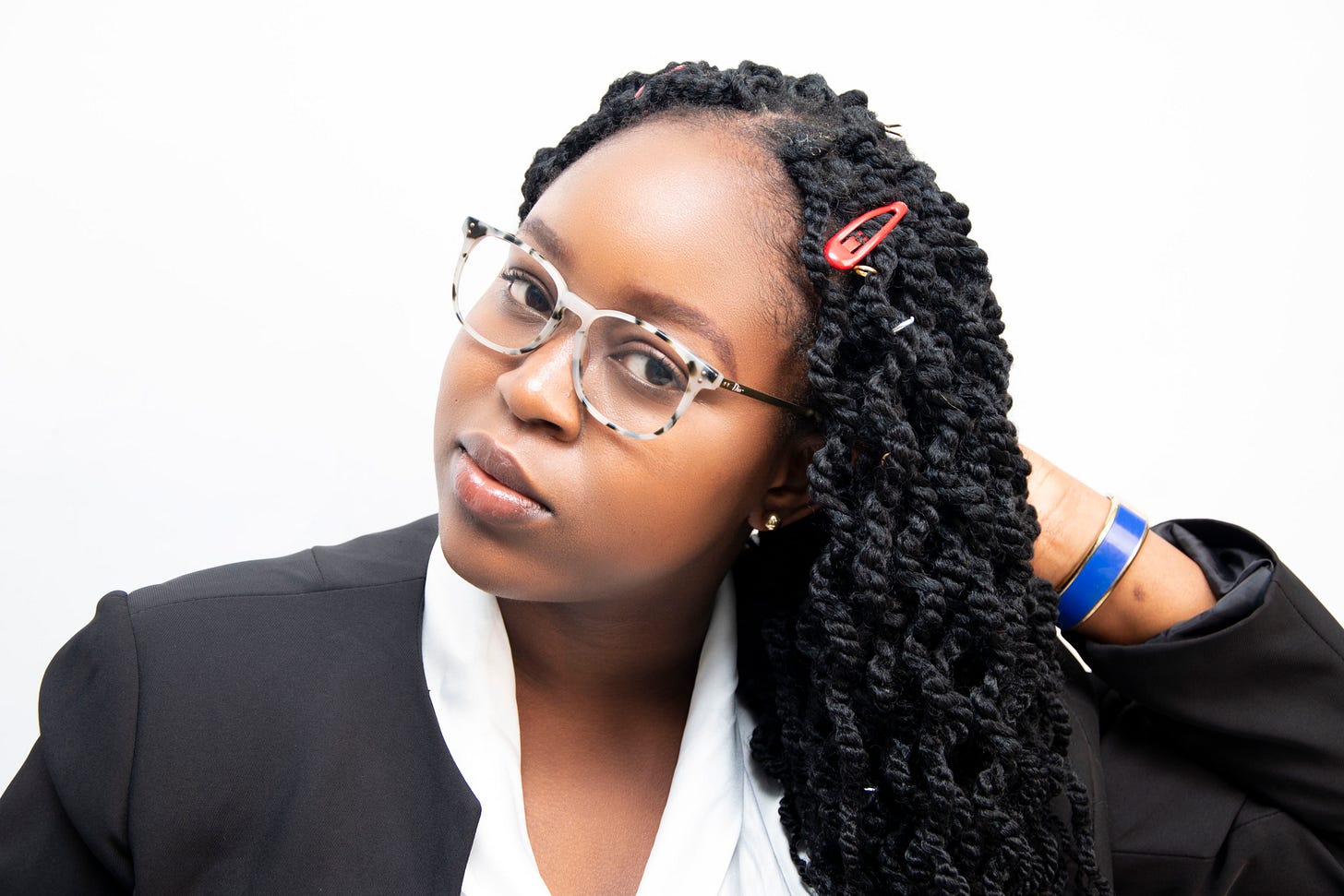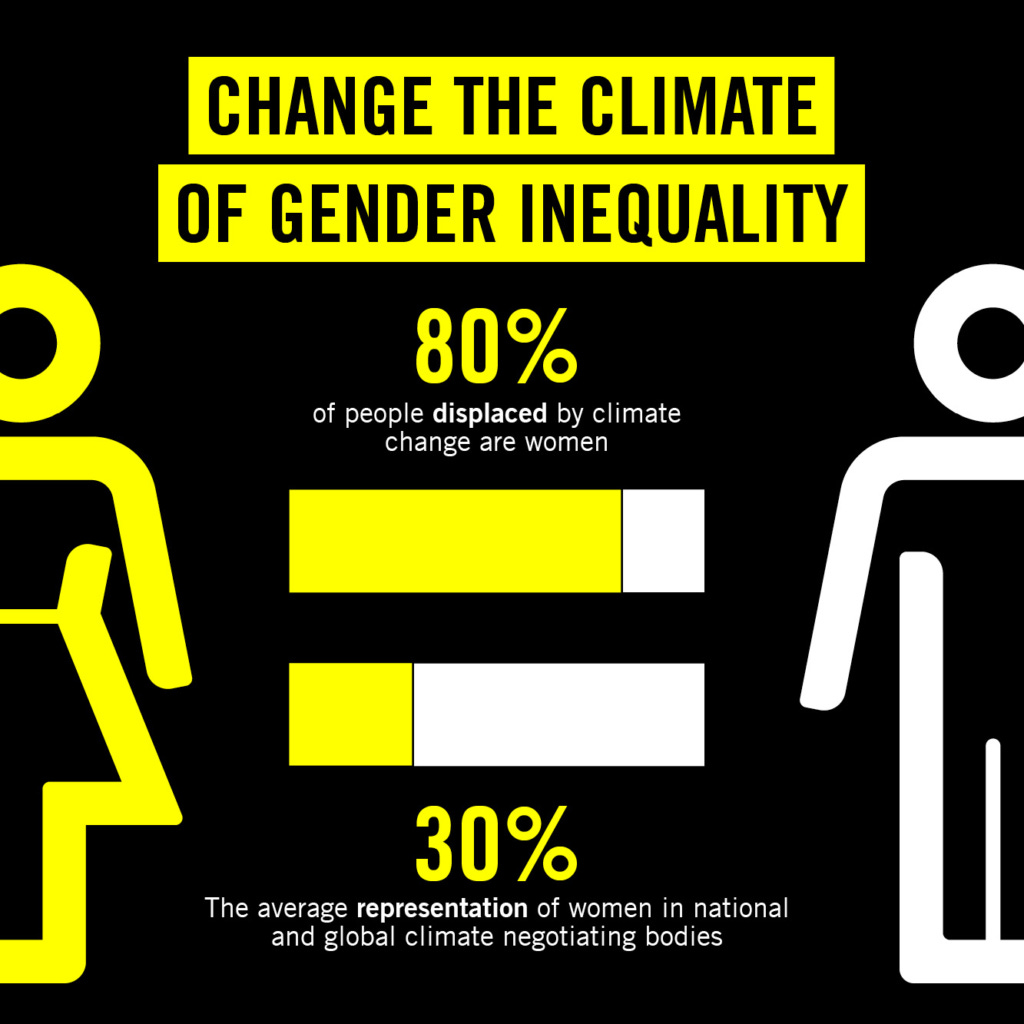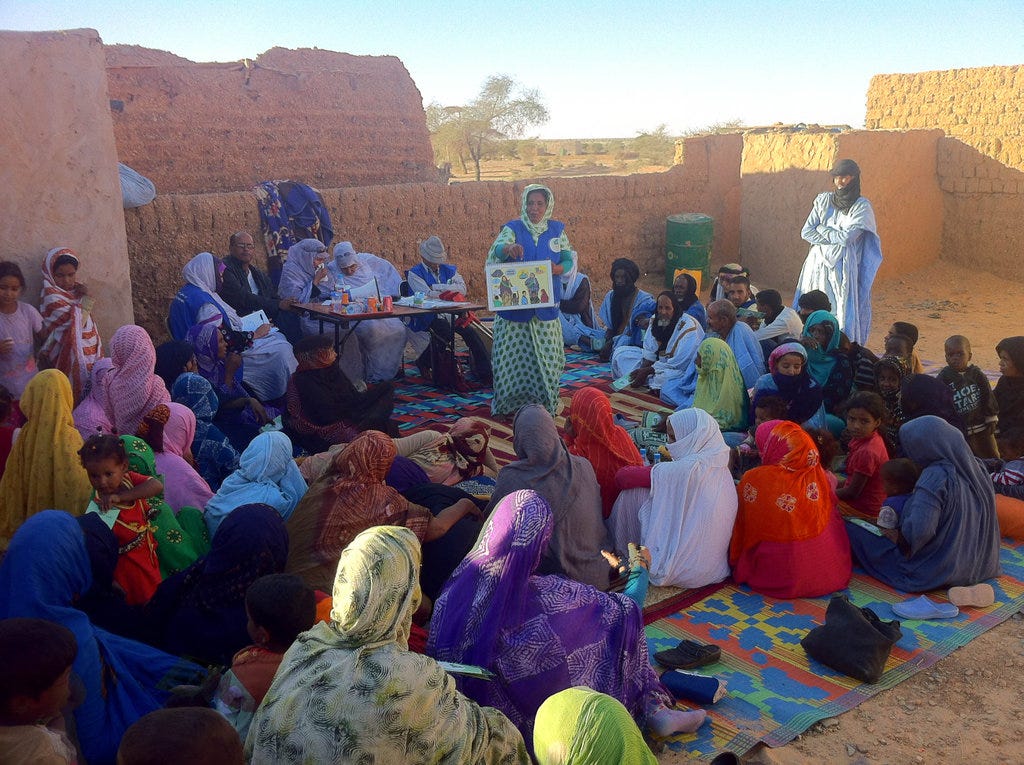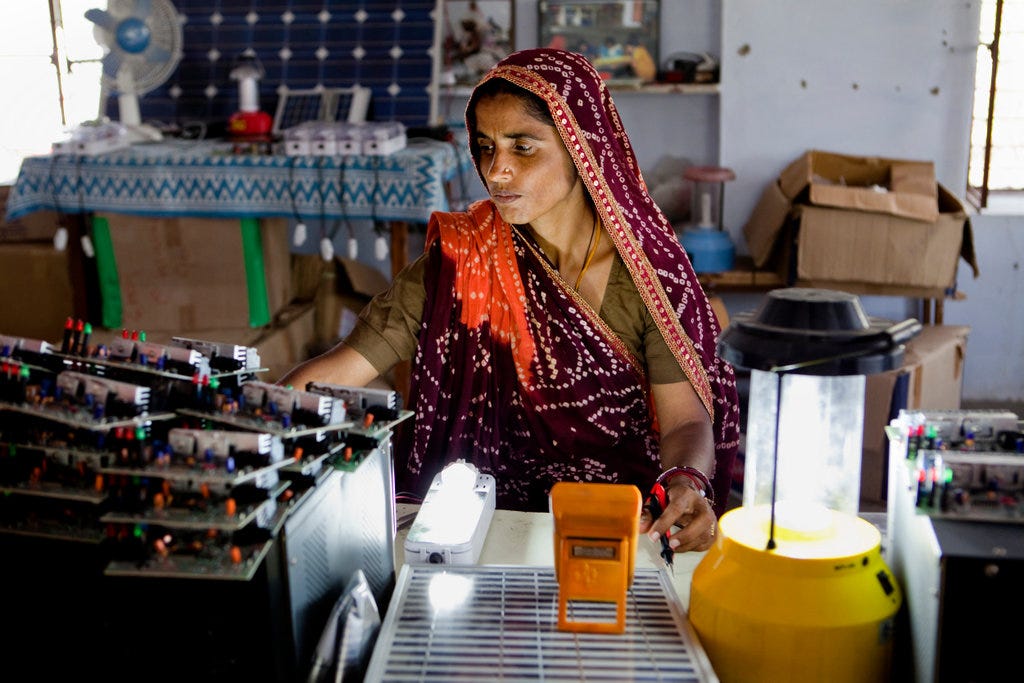Feminism will save the planet, if you let it. Here's how.
No, we are not overreacting.
Reykjavik. Icy and beautiful. What the hell am I doing here?
I stared out into the dark from inside the low-lit cheap bar. Tired but wired. A man was reading next to me. We got chatting. As you do. What are you doing here? He asked.
I don’t know. Does anyone in their twenties ever know what they’re doing anywhere? Let’s not delve into it.
So cold here, we agreed. Crazy low temperatures even for Iceland, we agreed.
I made a throwaway comment about climate change.
Actually, he said - the conversation always breaches into precarious territory with that kind of actually-
Actually, he said, I’ve been reading some studies. The impact humans have on climate change is vastly exaggerated. These fluctuations are normal. It’s not as bad as we thought.
I see, I said. Not seeing.
Sorry, I know this goes against your whole job, he said.
Actually, I said - because I always end up taking the bait and plunging into that precarious territory-
Actually, it doesn’t, I said.
I could have thrown IPCC reports at him or the overwhelming evidence that human activity is the major destructive influence on a destabilising climate. But no.
Let’s imagine that it’s all been exaggerated, I said. That we got it all wrong and there’s no environmental crisis to address. What would you change?
Would you stop trying? Would you stop cycling to work, would you drop litter on the ground again? Would you start wasting your money on more cheap shit you don’t need? Would you plant fewer trees and opt for the least efficient cars and heaters?
Would you stop trying to build homes and towns resilient to floods and fires? Would you accept a political system built on white supremacy, patriarchal standards and extreme inequalities?
Climate action does not need an external pressure or crisis. Climate justice and regenerative lifestyles make us happier, healthier, save us money, make more effective laws and more efficient cities. Sustainability saves us resources, it makes our culture richer and our societies more diverse. It creates jobs and opportunities and ideas, it keeps our homes warm and keeps food on the table. We are climate activists not to avert disaster but because it reaps us a world worth living in.
Of course, I didn’t actually say any of that. I wish I was that cool or eloquent. I mumbled something about there being no way to undermine a career that aims to make a fairer world.
He said, yes of course. That’s what I tell people - it’s not a reason to stop!
We ended up, improbably, in agreement. Should I have attempted a #smackdown moment? I don’t have energy for that - we’re in an energy crisis, don’t you know?
I do not want to be outraged and frustrated all the time. There are more things that unite us than divide us. Save your rage for those in power and find those points of connection with others where you can. Do we have the time to do anything else?
Help keep the Green Fix running! The newsletter is volunteer-run. If you find this newsletter useful, please consider tipping a virtual coffee.
What’s Going On?
The ozone layer is on track to recover, avoiding 0.5C degrees of warming.
Related: This isn’t the moment to relax - here’s how we make sure it keeps recovering.Police drag protestors out of German village being destroyed for a coalmine.
Useful: What to expect in energy in Germany and Europe in 2023.Nearly 200 countries sign an agreement protecting the rights of nature.
Useful: Can the world ‘halt and reverse’ biodiversity loss by 2030?Failure to address climate change is one of 10 greatest risks of next decade.
Related: A summary of the major risks of the next 1 and 10 years.Exxon scientists knew about climate change in the 1970s and covered it up.
Related: All major fossil fuel companies have been deliberately lying to us for decades.One of world’s largest carbon offsetting companies not actually doing much to offset carbon.
Related: Planting loads of trees and carbon offsetting is not the solution it sounds like.
Focus On… Ecofeminism
Cass Hebron, editor of The Green Fix, chats to Tolulope Gbenro about why yes, we need to talk about gender in climate action.
My name is Tolulope Gbenro. I am a Nigerian social impact activist and a climate activist. I work with NGOs and CSOs, and I write, speak, and advocate for climate change action.
How are feminism and climate change connected?
In lots of ways!
In developing countries, a lot of women work in agriculture to feed their families. When climate change happens, the means of livelihood for these females are disrupted and their daughters might need to leave school.
This increases the number of school dropouts because daughters have to help their mothers get food. For males it’s totally different, they just come home expecting food at the table.
Women are also more prone to malnutrition and diseases because they don’t eat enough. For cultural reasons [in many communities], men are the ones who eat first, whatever is left, goes to women.
We’re also not having female voices at the table in international debates, we’re not having female voices when policies are made, so the effects of climate change on women are not taken into account in policy. Gender imbalances are not only a regional problem, it’s a widespread problem.
In Nigeria, what is the state of women’s rights and of the feminist movement?
It’s improving. We’re seeing more women taking leadership roles, not just in politics. We’re seeing more women coming out as activists. People are beginning to understand that gender is just a social construct, it doesn’t really define who you are or what you choose to question.
However, not all states have adopted affirmative actions so you don’t have a lot of political representation of women in politics. Although we are expecting elections this year in February and recommendations have been written, still a lot of political parties are not choosing women for the main roles.
The question is also about the inclusion of qualified females, of putting them in positions in which they have political capacity. We’re seeing parties bringing forward females just as a figure, and then males are the ones who sit behind the scene and have board meetings, and hold the real power.
While you have entrepreneurship programmes, you have fully-funded bootcamps, the majority of the people who actually need these programmes the most are not even aware these programmes exist or don’t feel qualified to apply.
Could it just be that not enough women are applying for leadership positions?
Last year I ran a program on female participation in politics in Nigeria. We had some sessions to find out why few women were in leading roles.
Women are applying, but they’re not given those seats at the table. Lots of women have tried, over and over again, they are now tired and have decided to settle. They wonder “Why do I have to fight more only because of my gender, when I know I am qualified for this?”
How can we involve men in the movement to integrate feminism in climate action?
I believe that addressing stereotypes and gender roles is an important part of creating the right environment for ecofeminism. For instance, I don’t think it’s safe for me to leave the house at night alone because some men see women as property.
We need to rethink and reorient basic aspects in our cultures. We should dare to change those patterns, and it does not only depend on one gender, men and women have to work together.
What can we do to support feminism in the climate justice movement?
In developing countries, most of the programmes on ecofeminism are focused on agriculture, teaching women to plant, to take care of animals, and giving them chickens. The programmes can definitely go beyond that. Let’s teach women STEM, renewable energies, crafts, how to make reusable items, and recycling.
There should also be accountability. It’s very easy for your country to be at COP and say it has a policy, when the country doesn't actually have such a policy.
For example, if we go to the Nigeria climate action plan, the only part that actually talks about solutions is when it mentions nature-based solutions. The text doesn’t even address inclusion.
Gender mainstreaming should be brought to finance, not only just talking about it, but actually acting on it. Gender was in the agenda at COP27, but not much has been done.
You can follow Tolulope Gbenro on Twitter @GbenroTolu, Instagram @tolulope_gbenro and LinkedIn.
So Now What Do I Do?
LEARN MORE
Tune into this webinar on the 27th January on what ecofeminism means, by the Feminist Political Teach-In Series.
Read: How digital activists are using Wikipedia to change the invisibility of women in climate action.
Read: How sexism literally means women don’t have time for climate action.
TRY SOMETHING NEW
Join the online day of action on the 31st January against a new proposed oil field in the North Sea!
Apply to to be the new EU policy project lead at volunteer youth network ClimaTalk by 6th February.
Check out this online directory of climate career resources by artist Nicole Kelner (and don’t forget we have one too).
CHANGE THE SYSTEM
Working on sustainable development? Throw in an application for the Great Thinkers Fellowship by tomorrow 26 January!
Young Europeans can join this super-interesting online youth dialogue session with EU decision-makers all about climate education. 30th January.
The WFA mentorship programme for women in food and agriculture is accepting submissions! Apply by 1st February.
By the way…
The Green Fix is now offering low-cost sponsored slots on the newsletter. Book your slot here.
If you have a topic you want the Green Fix to cover, fill out this feedback form & tell us your idea!
Stay in the loop
You can follow the Green Fix on Twitter and LinkedIn. You can also connect with the editor Cass Hebron on Instagram, Twitter and LinkedIn.
Know someone interested in environmental issues? Forward this email to them - we want to reach people who care about doing more for the planet, with your help.












YES YES YES! I've written about this before but you've managed to put it so much more eloquently. Even if climate change is fake all the steps we are taking are going to create such a better world it's still worthwhile.